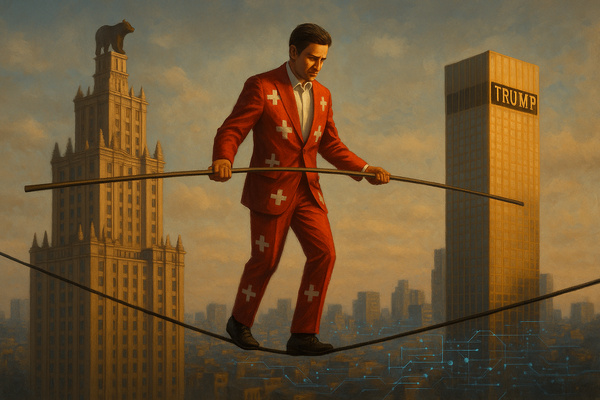A Neutrality Under Pressure
Swiss neutrality — once the cornerstone of national identity and stability — now stands at a crossroads.
For two centuries, it shielded Switzerland from wars, preserved internal cohesion, and projected an image of reliability.
But in 2025, the world has changed: hybrid wars, cyberattacks, sanctions, energy dependencies, and global information wars.
In this complex environment, traditional neutrality no longer guarantees protection nor credibility.
The real question is no longer whether to be neutral —
but how to be neutral intelligently.
The Founding Myth and Its Legacy
Since 1815, Swiss neutrality has rested on two pillars:
-
Legal neutrality, forbidding military participation in foreign conflicts.
-
Political neutrality, avoiding favoritism toward any power bloc.
This doctrine shaped Switzerland’s identity as a peaceful mediator and host of the world’s key negotiations.
The Red Cross, the United Nations in Geneva, countless diplomatic missions — all rooted in that tradition.
But the 21st century has redrawn the battlefield.
Wars no longer declare themselves — they infiltrate networks, markets, data, and minds.
A World That No Longer Rewards Silence
The war in Ukraine shattered the illusion of neutrality as a moral refuge.
When Switzerland adopted EU sanctions against Russia, it signaled that values can override equidistance.
That move blurred the lines:
-
Moscow no longer views Switzerland as neutral.
-
Brussels and Washington see it as not neutral enough.
-
Many Swiss themselves now question what “neutrality” truly means.
Neutrality is not dead — it’s simply in transition.
Refusing to choose is already a choice.
The Political Totem
Neutrality is more than a foreign policy principle — it’s a sacred symbol of national unity.
It embodies Switzerland’s ability to survive by avoiding the gravitational pull of empires.
That’s why no major party dares to reject it:
-
The right frames it as a sovereign shield.
-
The center promotes a pragmatic neutrality.
-
The left oscillates between moral solidarity and political realism.
This consensus, however, has a price: stagnation.
Questioning neutrality is treated like heresy — and yet,
What truly endangers neutrality is not change, but denial.
The Cracks in Traditional Neutrality
-
Armed neutrality must be credible. Without deterrence, neutrality becomes symbolic.
-
Economic neutrality is fading in a world of sanctions and dependencies.
-
Moral neutrality is impossible in the face of injustice.
-
Digital neutrality remains undefined — yet cyber warfare ignores borders.
Smart Neutrality: An Active, Intelligent Approach
Switzerland must evolve from defensive neutrality to strategic neutrality —
one that combines wisdom, ethics, and technology.
1. Armed and Sovereign Neutrality
Neutrality must be defensible to be credible.
-
Maintain deterrence and independence.
-
Invest in cyber defense and energy autonomy.
2. Active Diplomatic Neutrality
Neutrality is not silence — it is dialogue with all.
-
Reassert Geneva as the world’s negotiation hub.
-
Offer “smart mediation” in global crises.
3. Ethical Neutrality
Not to choose a side militarily — but to stand for human dignity.
-
Promote human rights, democracy, and the rule of law.
4. Digital and Economic Neutrality
In the age of AI and data, neutrality must also be coded.
-
Establish Swiss standards for data privacy, AI ethics, and cybersecurity.
-
Position Switzerland as a global hub of Digital Neutrality.
A Way Forward
Smart Neutrality is not passive — it’s strategic intelligence applied to peace.
It transforms neutrality from a wall into a bridge, from silence into influence.
The 21st century doesn’t need invisible nations.
It needs lucid, balanced ones —
and Switzerland can lead that movement,
turning its historic neutrality into a Smart Neutrality:
a living system of peace, ethics, and foresight.
What do you think?
Share your view in the comments and help shape what Swiss neutrality should mean in the 21st century.
 Accueil
Accueil






 Accueil
Accueil
























